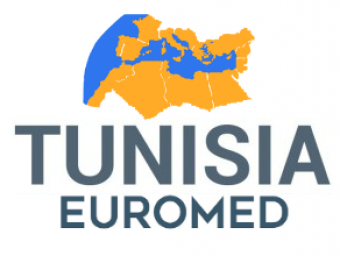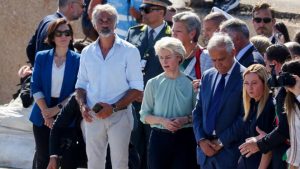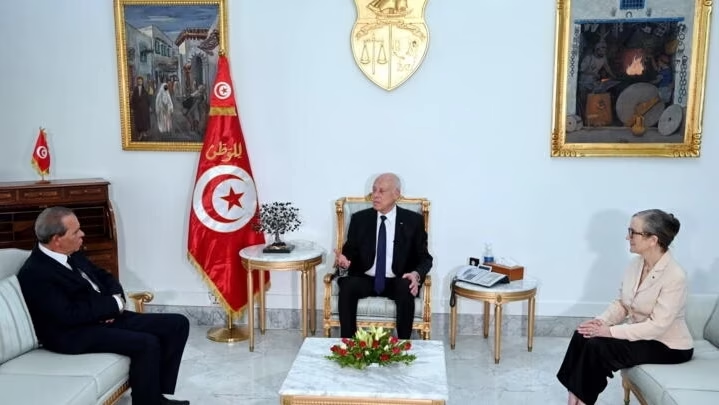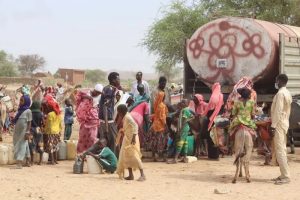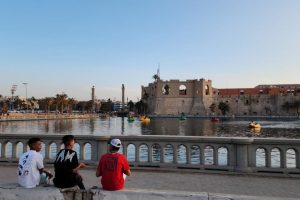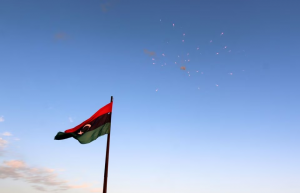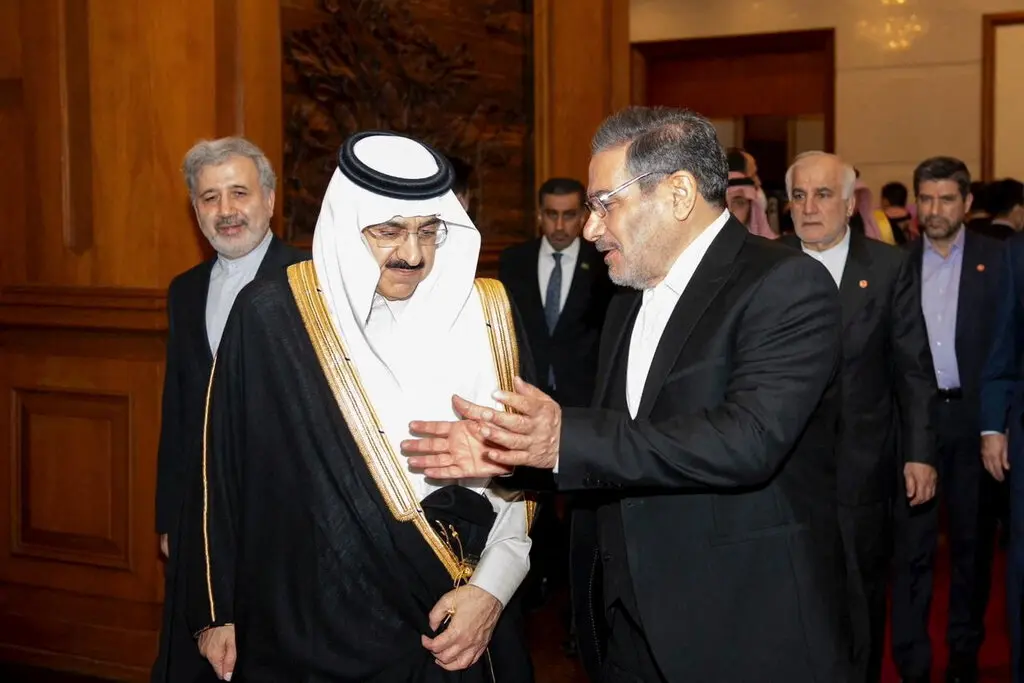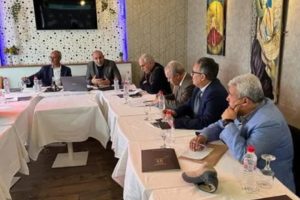Iran’s foreign ministry on Friday rejected criticism by France, Germany, Britain and the United States of its increase in uranium enrichment, saying this was part of its peaceful nuclear program.
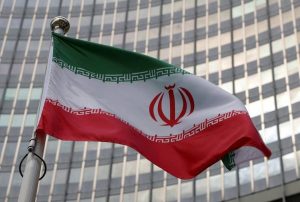
“Enrichment at 60% level in Iran’s enrichment centers has always been and will continue to be in accordance with the peaceful needs of the country and fully under the supervision of the International Atomic Energy Agency,” foreign ministry spokesperson Nasser Kanaani told state media.
Thirty-two Ukrainian drones were detected over Russia, Moscow officials reported on Saturday, a day after an 18-hour aerial barrage across Ukraine killed at least 30 civilians, The Associated Press said.
Drones were seen in the skies over Russia’s Moscow, Bryansk, Oryol, and Kursk regions, the country’s defense ministry said in a statement. It did not report any casualties and said that all of the drones had been destroyed by air defenses.
Cities across western Russia have come under regular attack from drones since May, with Russian officials blaming Kyiv.
Ukrainian officials never acknowledge responsibility for attacks on Russian territory or the Crimean peninsula. However, larger aerial strikes against Russia have previously followed heavy assaults on Ukrainian cities.
Moscow’s forces launched 122 missiles and dozens of drones across Ukraine Friday, an onslaught described by one air force official as the biggest aerial barrage of the war.
At least 144 people were wounded and an unknown number were buried under rubble in the assault, which damaged a maternity hospital, apartment blocks, and schools.
Western officials and analysts recently warned that Russia limited its cruise missile strikes for months in an apparent effort to build up stockpiles for massive strikes during the winter, hoping to break the Ukrainians’ spirit.
Fighting along the front line is largely bogged down by winter weather after Ukraine’s summer counteroffensive failed to make a significant breakthrough along the roughly 1,000-kilometer (620-mile) line of contact.
Following the latest Russian assault, shelling continued across eastern and southern Ukraine and in Russia’s border regions. One man was killed by a missile in a private home in Russia’s Belgorod region late Friday evening, regional head Vyacheslav Gladkov wrote on social media.
A further four people were injured, including a 10-year-old child, he said.
Turkish authorities detained 189 people in 37 provinces on Saturday suspected of ties to militant group ISIS, Interior Minister Ali Yerlikaya said on social media platform X.
Authorities have ramped up operations against ISIS and Kurdish militants in recent weeks, after Kurdish militants detonated a bomb near government buildings in Ankara on Oct. 1.
France, Germany, Britain and the United States on Thursday condemned an increase by Iran in the production rate of highly enriched uranium of up to 60% purity, close to the level used for nuclear weapons fuel.
“The production of high-enriched uranium by Iran has no credible civilian justification,” a joint statement by the allies said.
“We condemn this action, which adds to the unabated escalation of Iran’s nuclear program,” it added.
“We urge Iran to immediately reverse these steps and de-escalate its nuclear program”.
“We remain committed to a diplomatic solution and reaffirm our determination that Iran must never develop a nuclear weapon”, the joint statement stated.
Iran has “increased its production of highly enriched uranium, reversing a previous output reduction from mid-2023”, the International Atomic Energy Agency said in its report on Tuesday.
A New Jersey man arrested in Kenya has been charged for trying to aid militant Islamist group al Shabaab, the US Justice Department said, alleging he was motivated by Hamas’ Oct. 7 attack on Israel to wage violence.
The arrest comes amid heightened incidents of antisemitism and Islamophobia in the wake of the Israel-Gaza war, which have raised terror threat levels in the United States, Reuters said.
Karrem Nasr, a US citizen who moved from New Jersey to Egypt around July, was taken into custody in Nairobi on Dec. 14 and brought to the United States on Thursday, the Justice Department said in a statement on Friday.
The 23-year-old has been charged with “attempting to provide material support to a designated foreign terrorist organization,” which carries a maximum sentence of 20 years in prison, according to prosecutors.
The United States designates al Shabaab as a “foreign terrorist organization.”
US Attorney Damian Williams said that Karrem Nasr was motivated by the terrorist attack perpetrated by Hamas on October 7, and has devoted himself to waging violent acts against America and its allies.
Nasr traveled from Egypt to Kenya “bent on joining and training with al Shabaab,” prosecutors said.
In communications exchanged with an FBI confidential source and postings online, Nasr stated that he had been thinking about engaging in violent acts for a long time, and that he was particularly motivated by the October 7, 2023 Hamas terrorist attack in Israel, according to prosecutors.
Nasr took steps to join and receive training from al Shabaab, planning to meet members of the organization in Kenya for further travel to Somalia to join the group, the Justice Department said. He was taken into custody by Kenyan authorities.
It was not clear whether Nasr had legal representation.
The Justice Department has said it was monitoring rising threats against Jews and Muslims in the United States due to soaring levels of antisemitism and Islamophobia linked to the war in the Middle East.
In early December, FBI Director Christopher Wray said the threat level was so elevated that he saw “blinking lights everywhere.”
For the second time this month the Biden administration is bypassing Congress to approve an emergency weapons sale to Israel as Israel continues to prosecute its war against Hamas in Gaza under increasing international criticism.
The State Department said Friday that Secretary of State Antony Blinken had told Congress that he had made a second emergency determination covering a $147.5 million sale for equipment, including fuses, charges and primers, that is needed to make the 155 mm shells that Israel has already purchased function.
“Given the urgency of Israel’s defensive needs, the secretary notified Congress that he had exercised his delegated authority to determine an emergency existed necessitating the immediate approval of the transfer,” the department said.
“The United States is committed to the security of Israel, and it is vital to US national interests to ensure Israel is able to defend itself against the threats it faces,” it said.
The emergency determination means the purchase will bypass the congressional review requirement for foreign military sales. Such determinations are rare, but not unprecedented, when administrations see an urgent need for weapons to be delivered without waiting for lawmakers’ approval.
Blinken made a similar decision on Dec. 9, to approve the sale to Israel of nearly 14,000 rounds of tank ammunition worth more than $106 million.
Both moves have come as President Joe Biden’s request for a nearly $106 billion aid package for Ukraine, Israel and other national security needs remains stalled in Congress, caught up in a debate over US immigration policy and border security.
Some Democratic lawmakers have spoken of making the proposed $14.3 billion in American assistance to its Mideast ally contingent on concrete steps by Israeli Prime Minister Benjamin Netanyahu’s government to reduce civilian casualties in Gaza during the war with Hamas.
The State Department sought to counter potential criticism of the sale on human rights grounds by saying it was in constant touch with Israel to emphasize the importance of minimizing civilian casualties, which have soared since Israel began its response to the Hamas attacks in Israel on Oct. 7.
“We continue to strongly emphasize to the government of Israel that they must not only comply with international humanitarian law, but also take every feasible step to prevent harm to civilians,” it said.
“Hamas hides behind civilians and has embedded itself among the civilian population, but that does not lessen Israel’s responsibility and strategic imperative to distinguish between civilians and Hamas terrorists as it conducts its military operations,” the department said. “This type of campaign can only be won by protecting civilians.”
Bypassing Congress with emergency determinations for arms sales is an unusual step that has in the past met resistance from lawmakers, who normally have a period of time to weigh in on proposed weapons transfers and, in some cases, block them.
President Volodymyr Zelenskiy said on Friday he visited eastern Ukraine’s embattled town of Avdiivka, which Russian forces are trying to encircle in some of the most ferocious fighting at the front.
“We discussed the defense situation and basic needs with the commander,” Zelenskiy said on Telegram messenger. The president’s office said he had given out medals to soldiers.
Russia intensified its attacks on Avdiivka in mid-October after months of counteroffensive operations by Ukraine were unable to make significant headway against dug-in Russian positions this summer.
The fighting around Avdiivka, much of it now damaged, is reminiscent of a battle for another eastern city, Bakhmut, which fell to Russian forces in May after months of brutal urban combat.
Zelenskiy has made regular trips to areas near the front to visit soldiers throughout the full-scale invasion launched by Russia in February 2022.
The town of Avdiivka had a pre-war population of around 32,000 and has been a frontline city since 2014, when it was briefly occupied by Moscow-backed militants who seized a swathe of eastern Ukraine.
Britain is sending around 200 air defense missiles to Ukraine to help protect civilians and infrastructure from Russian drones and bombing, the British ministry of defense said on Friday.
The shipment comes as Russia unleashed one of its biggest missile attacks on Ukraine of the war, according to Kyiv, killing 18 civilians and wounding dozens others.
“(Russian President Vladimir) Putin is testing Ukraine’s defenses and the West’s resolve, hoping that he can clutch victory from the jaws of defeat. But he is wrong,” British Defense Secretary Grant Shapps said.
“Now is the time for the free world to come together and redouble our efforts to get Ukraine what they need to win.”
The air defense missiles, manufactured in Britain by defense contractor MBDA, are designed to be launched from aircraft including Typhoon and F-35 fighter jets, the defense ministry said.
Britain has committed a total of 4.6 billion pounds ($5.9 billion) in military support for Ukraine over two years.
Poland’s defense forces said an unknown object entered the country’s airspace Friday morning from the direction of Ukraine and then vanished off radars, and that all indications pointed to it being a Russian missile.
“Everything indicates that a Russian missile intruded in Poland’s airspace. It was monitored by us on radars and left the airspace. We have confirmation of this on radars and from allies” in NATO, said Poland’s defense chief, Gen. Wiesław Kukuła.
Poland’s defense forces said the object penetrated about 40 kilometers (24 miles) into its airspace and left it after less than three minutes. The defense forces said both its radar and NATO radar confirmed that the object left Polish airspace.
Kukula said steps were being taken to verify those findings and eliminate the possibility of a technical error.
There was no comment from Russian officials.
NATO Secretary General Jens Stoltenberg said on X, formerly Twitter, that he had spoken with Poland’s president about the “missile incident” and said NATO was vigilant and monitoring the situation “as the facts are established.”
It was not immediately clear where the object disappeared from radar or in which direction it had been going. Troops were mobilized to identify and find it. There were no immediate reports of any explosion or casualties.
The governor of Lublin province in eastern Poland, Krzysztof Komorski, told the Onet news portal that the object appeared on radars near the town of Hrubieszow, where a border crossing with Ukraine is located. Komorski said he had no information to indicate it landed in Lublin province.
Poland’s border with Ukraine is also the European Union and NATO border with Ukraine.
Prime Minister Donald Tusk convened a meeting with the defense minister, military commanders and heads of national security bodies, followed by a meeting of the National Security Bureau with President Andrzej Duda, the supreme commander of Poland’s armed forces.
Duda said through an aide that there was “no threat at the moment” and nothing to suggest that “anything bad” should be expected.
“The most important thing is that no one was hurt,” said the aide, Grazyna Ignaczak-Bandych.
On Friday, Ukrainian officials said Russia launched more than 100 missiles and dozens of drones against Ukrainian targets overnight in what an air force official called the biggest aerial barrage since Russia’s full-scale invasion of Ukraine in February 2022.
It was not clear whether the object that Poland reported was related to the barrage.
“As a result of such massive attacks, this can happen. The enemy is attacking our border territories, including in the west. This is another signal for our partners to strengthen the Ukrainian air defense,” Yurii Ihnat, spokesperson for Ukraine’s Air Force, said on national television about the incident.
Poland has been supporting Ukraine with military, humanitarian and political assistance.
This is not the first time an unauthorized object has entered Poland’s airspace from the direction of Ukraine since Russia’s full-scale invasion. In November 2022, two men were killed when a missile struck the village of Przewodow, a few kilometers from the border. Western officials said they believed a Ukrainian air defense missile went astray.
A light-water reactor at North Korea’s main nuclear complex will likely be formally operational by next summer, South Korea’s defense minister said, amid suspicions that the North may use it as a new source of fissile materials for nuclear weapons.
Concerns about North Korea’s nuclear program deepened recently as the UN atomic agency and foreign experts said they’ve detected signs indicating that North Korea had begun operating its light-water reactor at the Yongbyon nuclear complex.
IAEA Director General Rafael Grossi said last week that his agency had observed increased levels of activity at and near the reactor and since mid-October, a strong water outflow from its cooling system. He said the reactor is “a cause for concern” because it can produce plutonium — one of the two key ingredients used to manufacture nuclear weapons, along with highly enriched uranium.
The South Korean Defense Ministry said Friday that Defense Minister Shin Wonsik told local reporters a day before that his country had also spotted similar cooling system-related activities associated with the reactor last summer.
Shin said the reactor appears to be in the stage of a trial operation and that it’s expected to be officially operational around next summer.
North Korea has long produced weapons-grade plutonium from its widely known 5-megawatt reactor at Yongbyon. The light-water reactor would be an additional source of bomb fuels, and observers say its bigger capacity could allow it to produce more plutonium. Yongbyon has a uranium enrichment facility as well.
There are questions about the reactor’s reported operation, as light-water reactors are best-suited for electricity generation. Shin noted there has been no country that has used light-water reactors to produce weapons-grade plutonium. However, many observers say North Korea could adapt one at Yongbyon to produce weapons-grade plutonium.
“(North Korea)’s commissioning of a new light water nuclear power plant raises serious concerns, including safety,” the US Mission to the UN in Vienna said Saturday in a message posted on X, formerly known as Twitter. “(North Korea’s) unlawful nuclear & ballistic missile programs continue to pose a grave threat to international peace & security.”
Grossi also noted the North’s operation of the light-water reactor violates UN Security Council resolutions.
The IAEA and foreign governments rely on satellite imagery and other methods to monitor activities at Yongyon and other suspected nuclear facilities in North Korea. The North kicked out IAEA inspectors from the country in 2009.
Outside estimates on the size of North Korea’s nuclear arsenal vary, ranging from 20-60 to more than 100. Experts say North Korea can add six to 18 bombs each year. Since his diplomacy with the US collapsed in 2019, North Korean leader Kim Jong Un has repeatedly vowed to build more nuclear weapons and introduce high-tech weapons to cope with what he calls intensifying US hostility.
Foreign experts say Kim would ultimately hope to use his expanded nuclear arsenal to win sanctions relief from the US when diplomacy resumes.
In response to the North’s latest intercontinental ballistic missile test last week, the US, South Korea and Japan urged other countries to fully implement UN Security Council resolutions that have imposed punishing sanctions on the North for its past banned weapons tests.
Russia launched 122 missiles and dozens of drones against Ukrainian targets, officials said Friday, killing at least 30 civilians across the country in what an air force official called the biggest aerial barrage of the war.
At least 144 people were injured and an unknown number were buried under rubble during the roughly 18-hour onslaught, Ukrainian officials said. A maternity hospital, apartment blocks and schools were among the buildings reported damaged across Ukraine.
In the capital, Kyiv, broken glass and mangled metal littered city streets. Air raid and emergency service sirens wailed as plumes of smoke drifted into a bright blue sky.
Kateryna Ivanivna, a 72-year-old Kyiv resident, said she threw herself to the ground when a missile struck.
“There was an explosion, then flames,” she said. “I covered my head and got down in the street. Then I ran into the subway station.”
Meanwhile, in Poland, authorities said that what apparently was a Russian missile entered the country’s airspace Friday morning from the direction of Ukraine and then vanished off radars.
In the attack on Ukraine, the air force intercepted most of the ballistic and cruise missiles and the Shahed-type drones overnight, said Ukraine’s military chief, Valerii Zaluzhnyi.
Western officials and analysts had recently warned that Russia limited its cruise missile strikes for months in an apparent effort to build up stockpiles for massive strikes during the winter, hoping to break the Ukrainians’ spirit.
The result was “the most massive aerial attack” since Russia’s full-scale invasion in February 2022, Air Force commander Mykola Oleshchuk wrote on his official Telegram channel. It topped the previous biggest assault, in November 2022 when Russia launched 96 missiles, and this year’s biggest, with 81 missiles on March 9, according to air force records.
Fighting along the front line is largely bogged down by winter weather after Ukraine’s summer counteroffensive failed to make a significant breakthrough along the roughly 1,000-kilometer (620-mile) line of contact.
Ukrainian officials have urged the country’s Western allies to provide it with more air defenses. Their appeals have come as signs of war fatigue strain efforts to keep support in place.
British Prime Minister Rishi Sunak said the attack should stir the world to further action in support of Ukraine.
“These widespread attacks on Ukraine’s cities show (Russian President Vladimir) Putin will stop at nothing to achieve his aim of eradicating freedom and democracy,” Sunak said on social media platform X, formerly Twitter. “We must continue to stand with Ukraine — for as long as it takes.”
Ukrainian Foreign Minister Dmytro Kuleba said the scale of the attack should wake people up to Ukraine’s continuing needs.
“Today, millions of Ukrainians awoke to the loud sound of explosions,” he wrote on X. “I wish those sounds of explosions in Ukraine could be heard all around the world. In all major capitals, headquarters, and parliaments, which are currently debating further support for Ukraine.”
In Kyiv, the bombardment damaged a subway station that lies across the street from a factory belonging to the Artem company, which produces components for various military-grade missiles. Officials did not say whether the factory was directly hit.
Overall, the attack hit six cities, and reports of deaths and damage came in from across the country. Several dozen missiles were launched towards Kyiv, with more than 30 intercepted, said Serhii Popko, head of the Kyiv military administration. Eight people were killed there, officials said.
In Boyarka, near Kyiv, the debris of a shot-down drone fell on a home and started a fire. Andrii Korobka, 47, said his mother was sleeping next to the room where the wreckage landed and was taken to hospital suffering from shock.
“The war goes on, and it can happen to any house, even if you think yours will never be affected,” Korobka said.
Tetiana Sakhnenko lives next door and said neighbors ran with buckets of water to put out the blaze, but it spread quickly. “It’s so scary,” she said.
In the eastern city of Dnipro, four maternity hospital patients were rescued from a fire, five people were killed and 20 injured, officials said.
In Odesa, on the southern coast, falling drone wreckage started a fire at a multistory residential building, according to the regional head, Oleh Kiper. Two people were killed and 15, including two children, were injured, he said.
The mayor of the western city of Lviv, Andrii Sadovyi, said one person was killed there, with three schools and a kindergarten damaged in a drone attack. Local emergency services said 30 people were injured.
In northeastern Ukraine, Kharkiv Mayor Ihor Terekhov said the city was subjected to at least three waves of aerial attacks that included S-300 and Kh-21 missile launches. One person was killed and at least nine injured, officials said.
